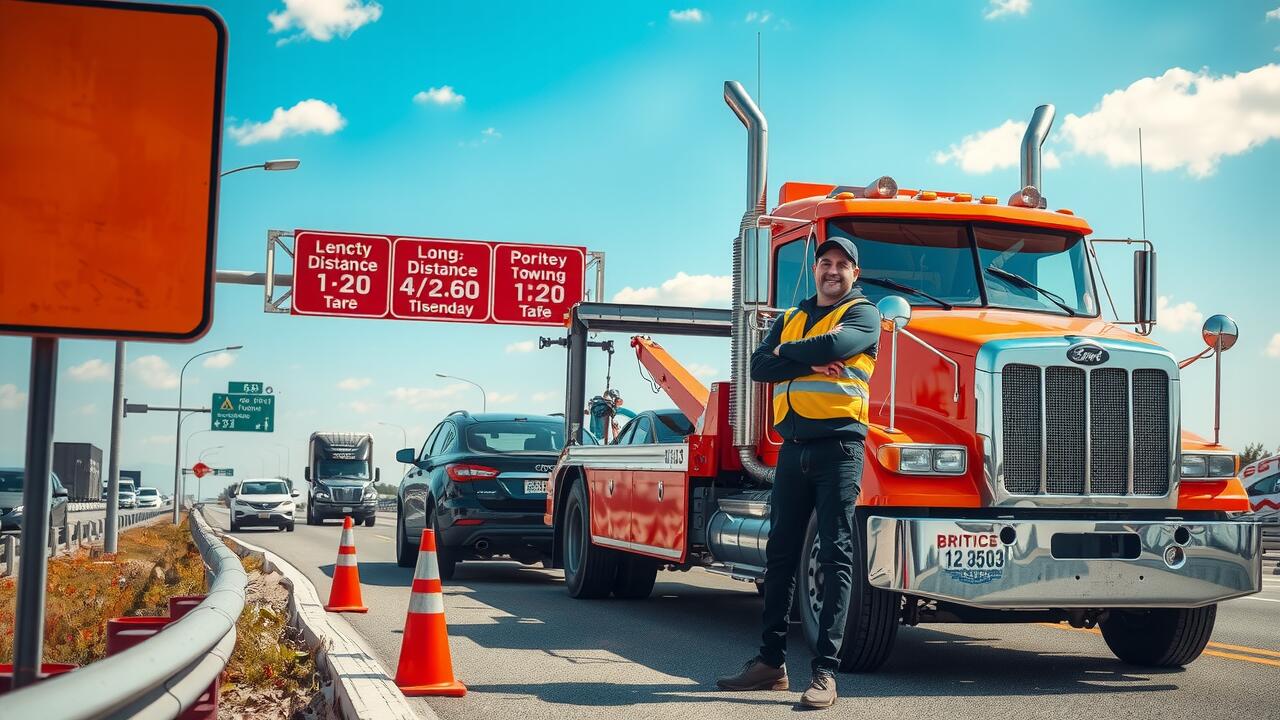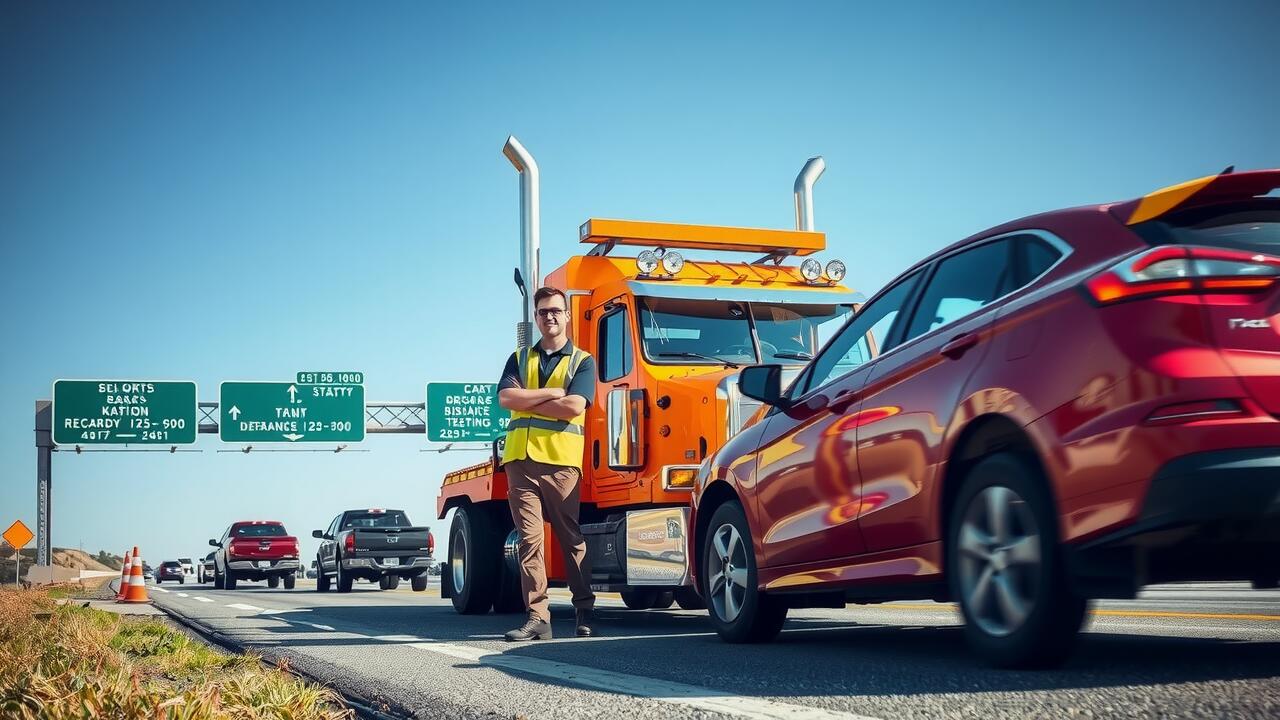
Recent Changes in Towing Legislation
Recent updates to towing legislation in North Carolina aim to establish clearer guidelines for what companies can charge for their services. This includes regulations governing both local and long distance towing. The changes were created to protect consumers from unexpected fees and to ensure transparency in pricing. Towing companies must now comply with defined rates and disclose these charges upfront, minimizing the potential for disputes.
The revised laws have implications for towing service providers as well. Companies must adjust their pricing structures to align with the new regulations while remaining competitive in the market. This shift encourages fair competition and helps standardize rates across the industry. By clarifying the legal framework surrounding towing, both consumers and service providers can better navigate the complexities of towing-related expenses.
Impact on Service Providers and Customers
The recent changes in towing legislation have introduced new regulations that shape the operations of service providers in North Carolina. Towing companies are now required to adhere to stricter guidelines regarding pricing, ensuring transparency and fairness. This shift not only reflects a response to customer concerns but also aims to promote ethical practices within the towing industry. Service providers must navigate these new rules while maintaining their profitability, which can be particularly challenging for businesses that rely on Local and Long Distance Towing services.
On the customer side, these legislative updates bring a sense of relief for those who have faced excessively high towing fees in the past. Clear price structures now help customers understand their rights and the expected costs associated with towing services. This newfound clarity can enhance consumer satisfaction while fostering a competitive landscape among towing companies. Both service providers and customers must remain informed about the evolving legal landscape to ensure equitable practices and protect their interests in towing scenarios.
How to File a Complaint Against Excessive Charges
If a customer believes they have been charged excessive fees by a towing company, it is essential to document all details regarding the incident. This includes taking photographs of the vehicle, noting the time and date of the towing, and keeping all related receipts. Contacting the towing company directly to resolve the issue can be a prudent first step, as many companies are willing to discuss charges and may rectify any misunderstandings.
If initial efforts to resolve the dispute are unsuccessful, filing a formal complaint with the North Carolina Department of Transportation is recommended. This can be done online or via mail. Customers should include all pertinent information, including the company’s details and any evidence collected. For both local and long distance towing situations, understanding the specific regulations that apply can aid in filing an effective complaint.
Steps to Report a Towing Company
Reporting a towing company for excessive charges or other grievances requires a systematic approach. Begin by gathering all relevant information, including the towing company’s name, the date and time of the towing, as well as any receipts or documents related to the incident. Take note of any signage in the area that indicates towing policies and fees. This documentation will help support your claim when you report the towing company to the appropriate authorities.
Contact your local consumer protection agency or the relevant state department to file a formal complaint. Provide them with all collected evidence. If the towing incident occurred in a private lot, consider also reaching out to the property owner or management. They may have their own policies regarding Local and Long Distance Towing and could assist in resolving the issue. Being organized and thorough can significantly improve the chances of a favorable outcome in your complaint.
Differences between Public and Private Towing Rates
Public and private towing rates in North Carolina differ significantly, primarily due to the regulations governing each sector. Public towing typically involves vehicles that have been impounded by law enforcement, and these charges are often regulated by local municipalities. The fees set for these services are generally more standardized and must adhere to local ordinances, limiting the amount that towing companies can charge. In contrast, private towing services are usually employed by businesses or property owners to remove vehicles from their premises. This flexibility allows private companies to establish their own pricing structures, which can vary greatly.
Local and long distance towing services also illustrate the pricing disparity between public and private towing. Local towing rates often reflect shorter distances and may include basic fees for hook-up and mileage. Long distance towing, however, tends to involve higher rates due to the increased fuel costs and time required for transportation. The absence of stringent regulations in the private sector can lead to more significant price variations, leaving consumers to navigate these differences when selecting a towing service. Understanding these distinctions helps individuals make informed decisions based on their specific needs.
Key Distinctions in Pricing
Pricing for towing services in North Carolina can vary significantly based on whether the tow is classified as public or private. Public towing often involves vehicles that are on public roadways or in situations requiring assistance from law enforcement. In these cases, standardized rates are typically established by local municipalities, ensuring that customers pay a fair price for emergency services.
In contrast, private towing, which usually occurs on private property, allows towing companies to set their own rates. This can lead to a wider range of charges based on factors such as location and the type of tow required. For instance, Local and Long Distance Towing may incur different pricing structures depending on the distance traveled and the complexity of the tow. Understanding these distinctions is crucial for consumers, as it can significantly impact their final costs in various towing situations.
FAQS
What are the legal limits on towing charges in North Carolina?
In North Carolina, towing companies must adhere to specific maximum rates set by state and local laws, which can vary by municipality. It’s recommended to check local ordinances for the exact limits.
Are there additional fees that can be charged by towing companies?
Yes, towing companies may charge additional fees for services such as after-hours towing, storage fees, and administrative costs. However, these charges must also comply with local regulations.
How can I find out if a towing company is charging me excessively?
To determine if you are being charged excessively, you can compare the towing fees against the established rates in your area and review the towing company's pricing policies, which should be posted at their location.
What should I do if I believe my towing charge is unfair?
If you believe your towing charge is excessive, you can file a complaint with the North Carolina Department of Transportation or your local consumer protection agency, providing all relevant details of your situation.
Is there a difference between public and private towing rates in North Carolina?
Yes, there are significant differences between public and private towing rates. Public towing rates are often regulated by local government, while private towing rates can vary widely based on the towing company’s pricing policies.
